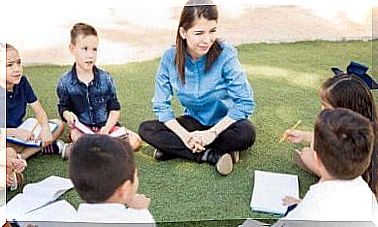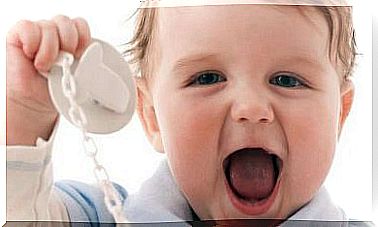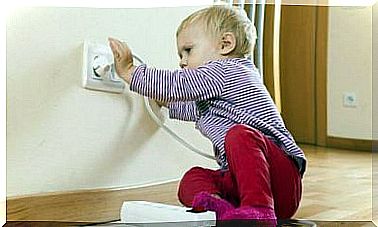Children With Low Frustration Tolerance: This Is How You Can Help!
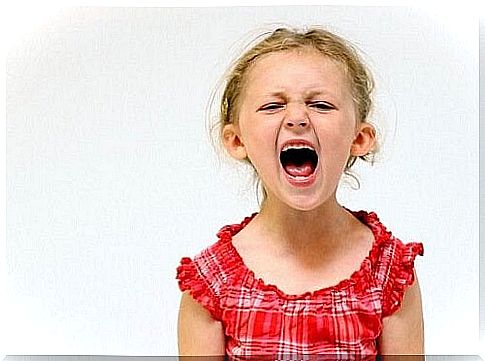
In this article we explain how children with low frustration tolerance can better cope with frustration. For this it is important that they learn how to deal with frustration from an early age.
It is important to understand that frustration is an emotional reaction that occurs when something does not go as we imagine or want it to be.
Children with low frustration tolerance also experience more emotions such as sadness, anger, fear, and stress. It is therefore important first of all to recognize how pronounced a child’s tolerance for frustration is.
Characteristics of children with low frustration threshold
If we are constantly helping our children and giving them everything they want, we are doing them a disservice. This avoids any situation that could cause frustration.
One way to encourage healthy emotional development in little ones is to teach them that life is made up of successes and failures.
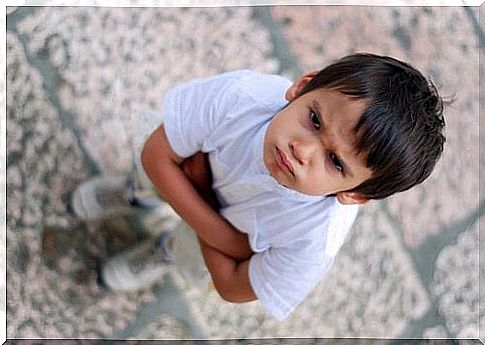
- Children with low frustration tolerance are more impatient and impulsive.
- They have a hard time keeping their emotions under control.
- Children with a low frustration threshold are very demanding .
- They try to meet their needs as quickly as possible. When they have to wait for something, they cry or get angry.
- They are more likely to show symptoms of depression or signs of anxiety when faced with conflict or difficulty.
- These children are less flexible and find it difficult to adapt.
- They believe that they deserve everything they want and think that the world revolves around them. They perceive rules and limits as unfair. It is extremely difficult for them to understand why they cannot have something.
- These children are prone to black and white thinking. They don’t believe in compromise.
Children with low tolerance for frustration – the causes
Some of the most common causes for this are:
- All of their needs are met instantly. If a child always gets what they want straight away, they don’t learn to have to wait for rewards. The smaller reward that is available immediately will always be preferred to a later larger one.
- The lack of clearly defined boundaries in her childhood. It is often the case that children with low tolerance for frustration grow up without limits. They also do not know or accept “no” as an answer.
- Parents who decide for the children. Many parents ultimately decide for their children. Choosing between different options inevitably involves risk. Parents often want to avoid that, so they make the decision.
Children with low tolerance for frustration – this is how you can help
Helping low-frustration children is easy. Here are a few tips:
- Be clear about the specific reasons behind their reactions.
- Tell them as often as necessary that it is normal to make mistakes. Helping your child express their feelings is one way they can better deal with frustrating situations.
- Try to explain to your child the difference between wanting and needing. This will help him suppress impulses.
- As an adult, you should be able to set goals and boundaries. These should be based on the age of the child and their abilities. This will avoid unnecessary frustration.
- Even a little humor can sometimes help in frustrating situations.
Activities for children with low frustration tolerance
Therapies and exercises for children can be an excellent support to promote a more balanced development of the little ones.
The sooner you do this, the sooner your child will mature into an adult capable of dealing with frustration.
Therapies:
- Relaxation exercises: You can practice relaxing with your child. So it can face the world positively, especially in difficult situations. Teach him to relax his mind and body – this also increases his tolerance for frustration.

- Get him to acknowledge when frustrated. It is important that low-frustration children can recognize when they find themselves in such a situation.
- Let your child know they can always ask for help. Teach him to look for solutions. If they are frustrated with certain tasks, make sure that they try different approaches before getting angry or giving up.
Further activities:
- Reinforce positive behavior. It is important to praise your child when using appropriate strategy to face a frustrating situation.
- Change the task. Show them another way they can achieve what they want.
- Role play. You can turn a frustrating moment into a game. First, you let your child express their frustration. Then it should take on the opposite role. Encourage your child to speak to themselves in a positive way in order to find the best solution to the problem.
Most often, affection and understanding are the best strategies to help manage frustration.
Certain situations in life that cause frustration are inevitable. The most important thing is that you equip your child with strategies to deal with it.
This makes it easier to direct emotions in the right direction and also to ask for help.




